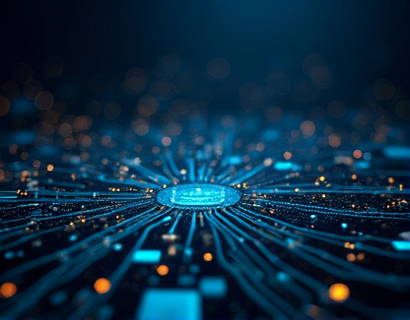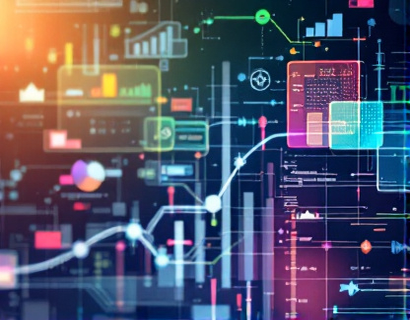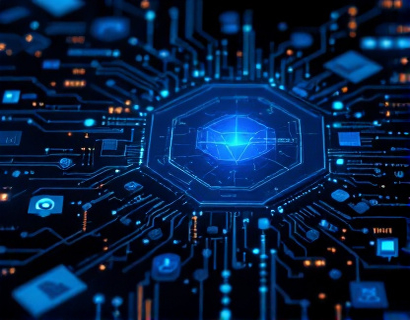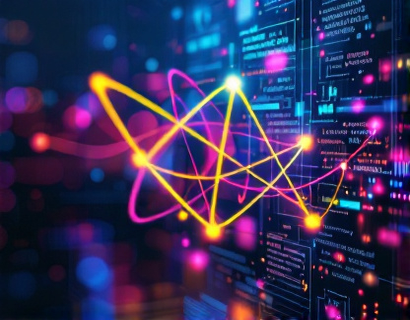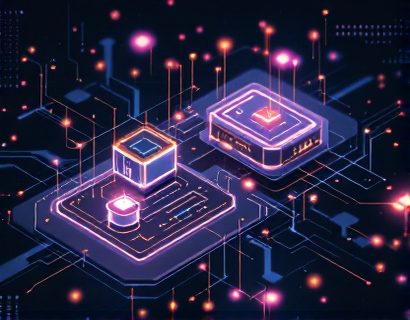Crypto and AI Synergy: Elevating Digital Engagement with Advanced Tech Solutions
The intersection of artificial intelligence (AI) and cryptocurrency is a rapidly evolving space that promises to revolutionize digital engagement and user experiences. This synergy is not just a technological curiosity but a powerful force driving innovation across various sectors. As tech-savvy innovators and early adopters increasingly explore the potential of AI and cryptocurrency, it's crucial to understand how these advanced technologies are transforming the digital landscape.
Understanding AI and Cryptocurrency
Artificial intelligence, defined by its ability to simulate human intelligence processes such as learning and decision-making, has become an integral part of modern technology. AI's applications range from simple chatbots to complex systems that can predict market trends and optimize operations. On the other hand, cryptocurrency, exemplified by Bitcoin, represents a decentralized digital currency that uses blockchain technology for secure and transparent transactions.
The convergence of AI and cryptocurrency is particularly exciting because it leverages the strengths of both technologies. AI can enhance the security, efficiency, and user experience of cryptocurrency systems, while cryptocurrency can provide the decentralized and secure environment necessary for AI to thrive without central points of failure or control.
Enhancing Security with AI
One of the most significant benefits of integrating AI into cryptocurrency systems is the enhancement of security. Cryptocurrency exchanges and wallets are prime targets for cyberattacks due to the high value of digital assets. AI algorithms can analyze vast amounts of data in real-time to detect and prevent fraudulent activities. Machine learning models can identify patterns indicative of malicious behavior, such as unusual transaction volumes or access attempts from unknown locations.
For instance, AI-powered systems can implement adaptive authentication methods, where the level of security scrutiny increases based on the risk level detected. This dynamic approach not only strengthens security but also improves user convenience by reducing unnecessary friction for low-risk transactions.
Optimizing Blockchain Performance
Blockchain technology, while revolutionary, faces challenges related to scalability and transaction speed. AI can play a crucial role in optimizing blockchain performance. By analyzing network data, AI can predict and mitigate congestion, optimize consensus mechanisms, and improve the overall efficiency of blockchain operations.
For example, AI can assist in the development of more efficient consensus algorithms, reducing the computational power required for validating transactions. This not only lowers the energy consumption of blockchain networks but also makes them more accessible and sustainable. Additionally, AI can help in the design of layer 2 solutions, such as state channels and sidechains, which enhance transaction throughput without compromising security.
Personalized User Experiences
The integration of AI in cryptocurrency platforms enables the creation of personalized user experiences. AI algorithms can analyze user behavior and preferences to offer tailored recommendations, from investment strategies to wallet management tips. This level of personalization enhances user engagement and satisfaction, fostering a more loyal and active community.
For instance, AI-driven financial advisors can provide users with customized investment portfolios based on their risk tolerance, financial goals, and market conditions. These advisors can continuously learn from user interactions and market data to refine their recommendations, ensuring that users receive the most relevant and valuable insights.
Smart Contracts and AI
Smart contracts, self-executing contracts with the terms directly written into code, can be significantly enhanced by AI. AI can help in the creation and management of smart contracts by automating complex logic and ensuring compliance with predefined conditions. This reduces the risk of errors and increases the reliability of smart contracts.
Moreover, AI can analyze historical data and predict future outcomes, allowing for more sophisticated and adaptive smart contracts. For example, in decentralized finance (DeFi) applications, AI can help in designing dynamic lending and borrowing protocols that adjust interest rates based on market conditions, ensuring fair and efficient financial services.
Decentralized AI Models
Another promising area of synergy between AI and cryptocurrency is the development of decentralized AI models. Traditional AI systems often rely on centralized data repositories and computing resources, which can be vulnerable to censorship and control. Decentralized AI, powered by blockchain, allows for the distribution of data and computation across a network of nodes, enhancing privacy and security.
This approach not only protects user data but also democratizes access to AI capabilities. Developers and users can contribute to and benefit from a shared AI ecosystem, fostering innovation and collaboration. Decentralized AI models can be trained and updated continuously, ensuring that they remain up-to-date and effective.
Case Studies and Real-World Applications
Several projects and platforms are already leveraging the synergy between AI and cryptocurrency to enhance digital engagement. One notable example is Chainlink, a decentralized oracle network that uses AI to provide accurate and reliable data feeds to smart contracts. Chainlink's AI-driven data validation ensures that the information fed into smart contracts is trustworthy, enabling more complex and reliable decentralized applications.
Another example is Compound, a decentralized finance protocol that uses AI to optimize liquidity provision and yield farming strategies. Compound's AI algorithms analyze market data and user behavior to suggest optimal strategies for maximizing returns while managing risk. This level of automation and personalization has significantly improved user engagement and adoption.
Challenges and Considerations
While the potential of AI and cryptocurrency synergy is vast, there are several challenges that need to be addressed. One major concern is the regulatory landscape, as both AI and cryptocurrency are subject to varying and often stringent regulations across different jurisdictions. Ensuring compliance while innovating is a delicate balance that requires careful navigation.
Another challenge is the technical complexity involved in integrating AI with blockchain systems. Developing robust and scalable solutions that can handle the high transaction volumes and security requirements of cryptocurrency platforms is a non-trivial task. Continuous research and development are essential to overcome these technical hurdles.
Future Prospects
The future of AI and cryptocurrency synergy looks promising, with numerous potential applications and innovations on the horizon. As AI continues to advance, we can expect even more sophisticated and seamless integrations with cryptocurrency systems. The development of quantum-resistant algorithms, for instance, will ensure that AI and blockchain remain secure in the face of emerging quantum computing threats.
Moreover, the rise of Web3, a decentralized internet powered by blockchain and AI, holds the promise of a more equitable and user-centric digital world. Web3 applications will leverage AI to create intuitive and personalized user experiences, while blockchain ensures transparency and security. This evolution will not only enhance digital engagement but also empower users with greater control over their data and digital assets.
Conclusion
The synergy between AI and cryptocurrency is a powerful force driving the next wave of digital innovation. By enhancing security, optimizing performance, personalizing user experiences, and enabling decentralized AI models, this combination is transforming the way we interact with digital technologies. As tech enthusiasts and early adopters continue to explore and adopt these advanced solutions, the potential for growth and engagement in the tech landscape is immense. Embracing this synergy is not just about staying ahead of the curve; it's about shaping the future of digital interaction.








